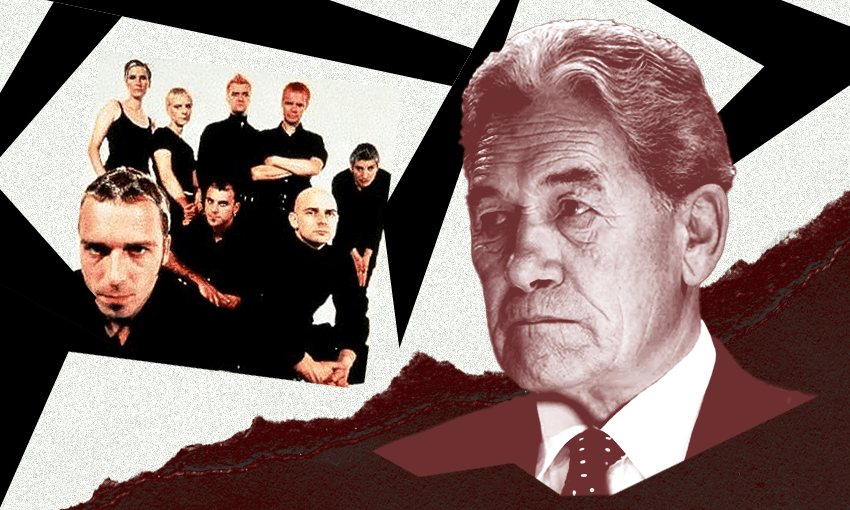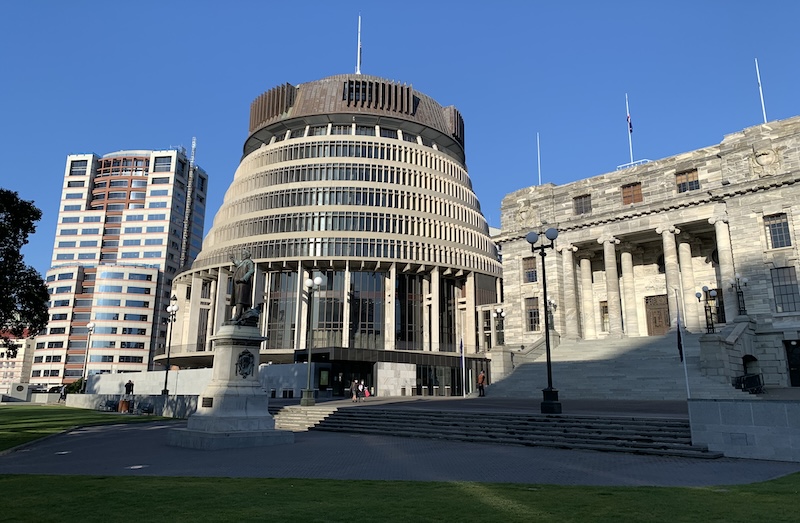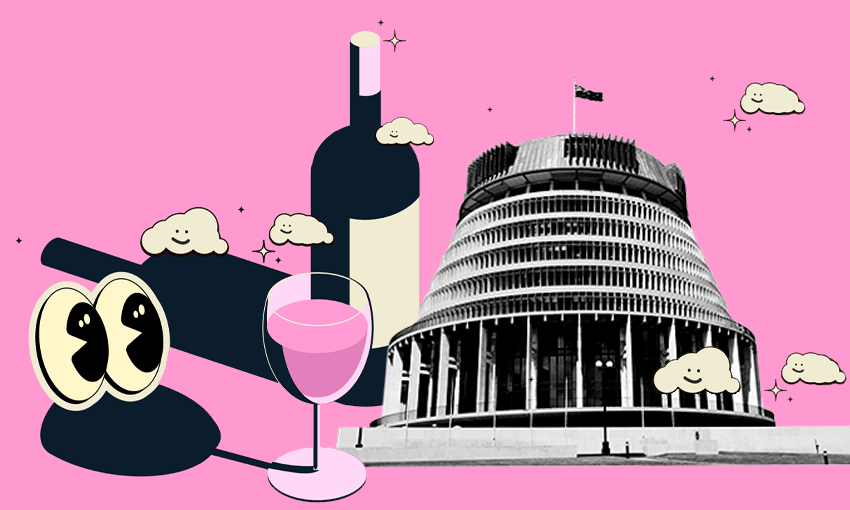The band has asked their record label to issue a cease and desist to stop the NZ First leader using their 1997 hit to support his ‘misguided political views’.
“I get knocked down, but I get up again,” blared through the speakers on Sunday as Winston Peters took the stage at the Palmerston North Convention Centre. Then the NZ First leader delivered a state of the nation speech where he compared co-governance to Nazi Germany, talked about plans to remove gender and sexuality lessons from the school curriculum and said that NZ First and their supporters have a “real chance to take back our country”.
He finished by paraphrasing the song he’d walked on stage to – 1997 hit ‘Tubthumping’ by British anarchist punk band Chumbawamba: “We got knocked down, but we got up again – and nothing is going to stop us now.”
It’s not the first time Peters has referenced ‘Tubthumping’. Launching NZ First’s election campaign in July last year, he warned members to steel for the slinging of dirt: “Just repeat to yourself the words of Chumbawamba: ‘I get knocked down. But I get up again. You’re never gonna keep me down.’”
But Peters’ fondness for Chumbawamba is not reciprocated. Asked for comment by The Spinoff on the use of ‘Tubthumping’, the band said they had not given permission, and had asked their record company Sony to issue a cease and desist notice requiring Peters to “stop using it to try to shore up his misguided political views”.
In a statement, Boff Whalley, formerly the lead guitarist, said, ‘Tubthumping’ was written “as a song of hope and positivity, so it seems entirely odd that the ‘I get knocked down…’ refrain is being used by New Zealand’s deputy prime minister Winston Peters as he barks his divisive, small-minded, bigoted policies during his recent speeches”.
Chumbawamba, who were active from 1982 to 2012, were openly anarcho-communists, following a far leftwing political ideology that rejects the authority of governments. They played benefit shows at miner strikes, picket lines, anti-war events and aligned themselves with Marxism, feminism, gay liberation, class struggle and anti-fascism. At the 1998 Brit Awards, in protest at the Labour government’s refusal to support the Liverpool dockworkers’ strike, band member Danbert Nobacon poured a jug of water over UK deputy prime minister John Prescott, who was in the audience.
While ostensibly a simple, catchy drinking song, ‘Tubthumping’, which was Chumbawamba’s biggest hit by far, has been described as “a Trojan horse designed to covertly deliver anarcho-communism to the masses”.
It’s not the first time the band has stepped in to ask a controversial politician to stop using ‘Tubthumping’. In 2011, Nigel Farage, the leader of British rightwing populist party Ukip, appeared on stage at a conference in England as the song played, which prompted band member Dunstan Bruce to say, “I am absolutely appalled that this grubby little organisation are stealing our song to use for their own ends. It’s beyond the pale and if they use it again we will consider legal action.” A spokesperson for Ukip said the party would stop using the song.
In New Zealand, standard public performance music licences typically held by venues don’t cover the use of music at political events, if that music is used in a way that suggests an affiliation with a political party. Written approval from both the songwriter and recording artists must be attained beforehand, otherwise there is a risk of infringing copyright. This would also address a “Moral Rights Risk” in the Copyright Act 1994, where using music in a way that the artist considers “detrimental to their honour or reputation” may breach their moral rights.
Chumbawamba join a number of artists who in recent years have publicly and legally opposed the use of their music by politicians. Neil Young opposed his music being used by Donald Trump, as did Adele, Rihanna, and the list goes on. Here in New Zealand, when the National Party used a track called ‘Eminem Esque’ that sounded remarkably similar to Eminem’s ‘Lose Yourself’ in an election campaign ad in 2014, Eminem pursued them and won NZ$600,000 in damages.
Whalley said the band would like to remind Peters that the song was written “for and about ordinary people and their resilience”. Tub-thumper is British slang for aggressive political protesting. The song was inspired by Whalley’s neighbour who drunkenly struggled to open his front door while singing ‘Danny Boy’ one night. Eventually, he got in, and the song became about perseverance. Whalley says the song is “not about rich politicians trying to win votes by courting absurd conspiracy theories and spouting misguided racist ideologies”.





















Discussion about this post